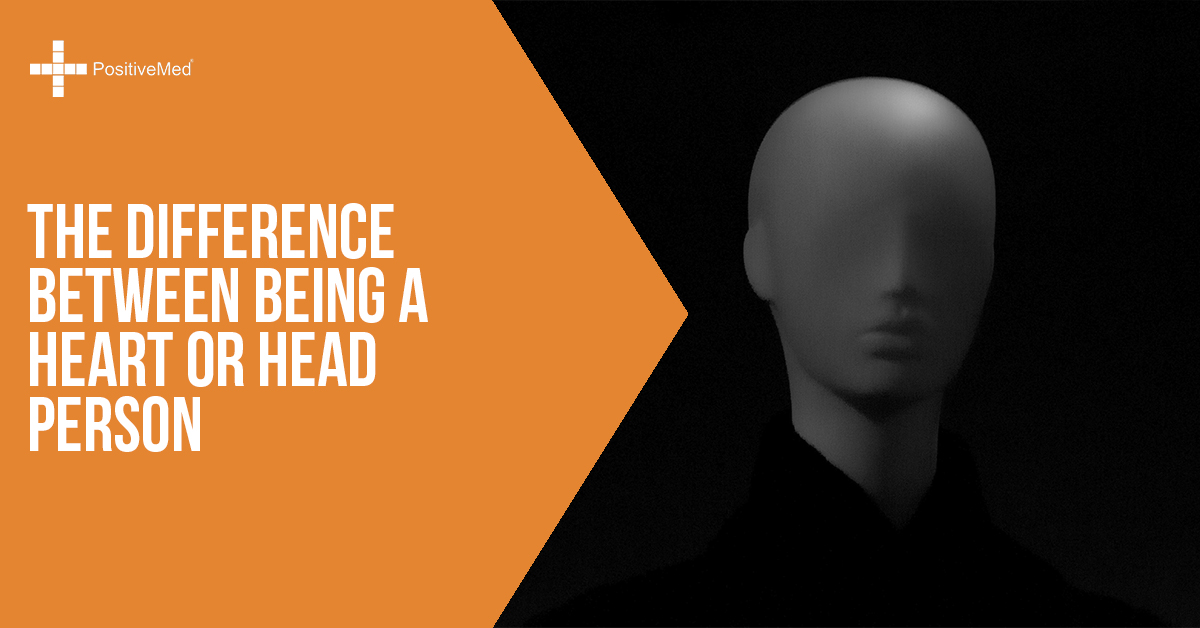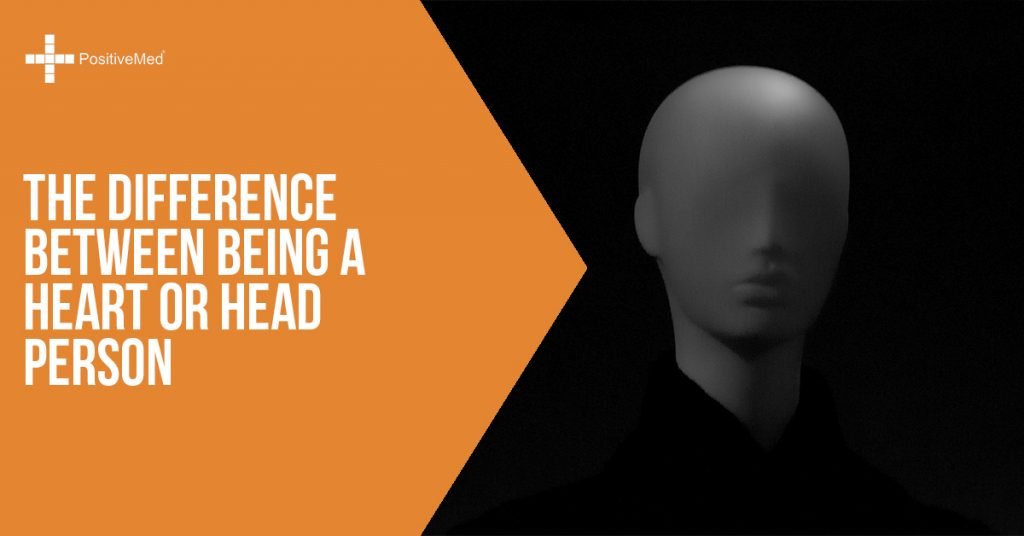Where do you sense “yourself?” Some call it the difference between being a heart or head person. This “self” affects your life and relationships. Once you realize you think differently than your love or coworker, you see why you sometimes disagree. You learn how to cope and understand them better.

Here are a few ways to help you decide.
Do you go with your “gut” or “feelings?” A Heart person values feelings and emotional instincts. This person decides based on whether something feels right. The Heart person is sensitive to other people’s feelings, tactful, people-oriented, and sociable. This personality type enjoys group activities. The Heart person likes harmony. This person might appear logically unreliable until you realize their Heart rules.
READ ALSO: Find Your True Love According To Your Myers-Briggs Personality Type
Do you make a list of pros and cons to coolly make decisions? If so, you fall in the Head category. You figure out the logical way to do something and make a decision. You do not get emotional about it. Once you decide, you move on to the next task. You value individualism more than being a group member. You tend to think in black and white. You like clear rules.
Or, like most of us, does it just depend on the situation? Most of us fall between the two extremes. We make some decisions emotionally, and others require a logical decision. Our brains naturally possess rational and emotional parts. The two sides always compete.
RELATED ARTICLE: Personality Test: Discover Your Personality Type
Consider this point. Strong emotions (anger, fear, anxiety, and love) or information overload override the Head’s logic. This explains people running into burning buildings for their beloved pets. It explains why people, crippled with depression and anxiety, have trouble making logical decisions!
*If you recognize whether someone is a Heart or Head person, you can better communicate with them. To help an emotional Heart person calm down to make a decision, recognize their emotions. Empathize with them. Slowly become more logical and wait. It gives them time to calm and think. HOW you communicate is as important as what you say.
To sway a Head person, you calmly persuade them with logic and critical thinking. A Head person is not heartless, but present feelings as additional info. Those emotional concerns might be the deciding factor for them.
On the flip side, to keep someone from thinking too much about something, stir them up emotionally!
Salesmen know that if they get their customers excited or desperately wanting something, those emotions might overcome the Head’s reluctance to purchase. Maybe it is a sports car or a home feature that stirs desires. A customer WANTS that fast car or home with a pool, even though they logically shopped for a minivan or a home closer to the city.
It is unfair to judge a Heart or a Head person. One is not better or smarter than the other. We have aspects of both, and human survival depends on them. The Heart knows when something feels “off” before the Head figures it out. The Heart’s “fight or flight” impulse saves lives! Every day the Heart’s “little voice” softens decisions. The Head makes routine, logical choices so we aren’t emotionally exhausted.
If you understand yourself better, you cope and make better life choices. You recognize why certain jobs will not satisfy you. You identify situations that might stress you and avoid an impulsive decision. You recognize emotional ploys trying to overcome your Head’s reasoning. You also learn to understand and better relate to others.






